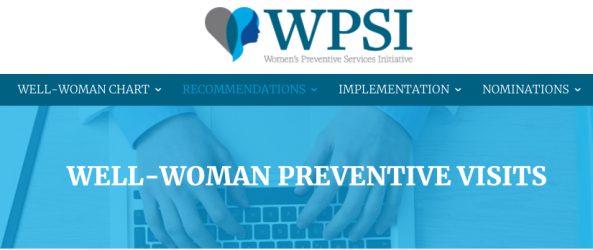
Clinical Recommendations
The Women’s Preventive Services Initiative recommends that women receive at least one preventive care visit per year beginning in adolescence and continuing across the lifespan to ensure that the recommended preventive services, including preconception and many services necessary for prenatal and interconception care, are obtained. The primary purpose of these visits should be the delivery and coordination of recommended preventive services as determined by age and risk factors.
Implementation Considerations
The Women’s Preventive Services Initiative recommends as a preventive service for women, that women receive at least one preventive care visit per year. Additional well-woman visits may be needed to obtain all necessary services depending on a woman’s age, health status, reproductive health needs, pregnancy status, and risk factors. Visits should allow sufficient time to address and coordinate services, and a team-based approach may facilitate delivery of services.
Well-woman preventive services may include, but are not limited to, assessment of physical and psychosocial function, primary and secondary prevention and screening, risk factor assessments, immunizations, counseling, education, preconception care, and many services necessary for prenatal, and interconception care. Recommended services are evidence-based items or services that have in effect a rating of ‘A’ or ‘B’ in the current recommendations of the United States Preventive Services Task Force, immunizations that have in effect a recommendation from the Advisory Committee on Immunization Practices of the Centers for Disease Control and Prevention with respect to the individual involved, with respect to infants, children, and adolescents, evidence-informed preventive care and screenings provided for in the comprehensive guidelines supported by the Health Resources and Services Administration, and with respect to women, such additional preventive care and screenings as provided for in comprehensive guidelines supported by the Health Resources and Services Administration.

